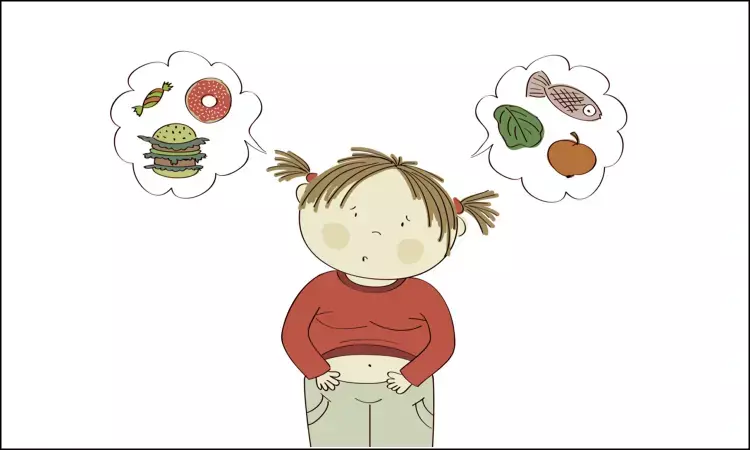- Home
- Medical news & Guidelines
- Anesthesiology
- Cardiology and CTVS
- Critical Care
- Dentistry
- Dermatology
- Diabetes and Endocrinology
- ENT
- Gastroenterology
- Medicine
- Nephrology
- Neurology
- Obstretics-Gynaecology
- Oncology
- Ophthalmology
- Orthopaedics
- Pediatrics-Neonatology
- Psychiatry
- Pulmonology
- Radiology
- Surgery
- Urology
- Laboratory Medicine
- Diet
- Nursing
- Paramedical
- Physiotherapy
- Health news
- Fact Check
- Bone Health Fact Check
- Brain Health Fact Check
- Cancer Related Fact Check
- Child Care Fact Check
- Dental and oral health fact check
- Diabetes and metabolic health fact check
- Diet and Nutrition Fact Check
- Eye and ENT Care Fact Check
- Fitness fact check
- Gut health fact check
- Heart health fact check
- Kidney health fact check
- Medical education fact check
- Men's health fact check
- Respiratory fact check
- Skin and hair care fact check
- Vaccine and Immunization fact check
- Women's health fact check
- AYUSH
- State News
- Andaman and Nicobar Islands
- Andhra Pradesh
- Arunachal Pradesh
- Assam
- Bihar
- Chandigarh
- Chattisgarh
- Dadra and Nagar Haveli
- Daman and Diu
- Delhi
- Goa
- Gujarat
- Haryana
- Himachal Pradesh
- Jammu & Kashmir
- Jharkhand
- Karnataka
- Kerala
- Ladakh
- Lakshadweep
- Madhya Pradesh
- Maharashtra
- Manipur
- Meghalaya
- Mizoram
- Nagaland
- Odisha
- Puducherry
- Punjab
- Rajasthan
- Sikkim
- Tamil Nadu
- Telangana
- Tripura
- Uttar Pradesh
- Uttrakhand
- West Bengal
- Medical Education
- Industry
Impulsiveness in kids linked to faster eating, leading to obesity: Study

The findings are critical because faster eating and greater responsiveness to food cues have been linked to obesity risk in children.
BUFFALO, N.Y: Children who are highly responsive to food cues (the urge to eat when food is seen, smelled or tasted) are more likely to experience frustration and discomfort and have difficulties self-soothing, show results from a recent study. The study, co-led by the University at Buffalo and Children's Hospital of Philadelphia, is published in the journal Pediatric Obesity.
Few studies have examined the relationship between temperament and eating self-regulation in early childhood, despite emerging evidence for associations with pediatric obesity.
The research, which sought to uncover the relationship between temperament and eating behaviors in early childhood, also found that children who eat slower are less likely to be extroverted and impulsive.
These findings are critical because faster eating and greater responsiveness to food cues have been linked to obesity risk in children, says Myles Faith, PhD, co-author and professor of counseling, school and educational psychology in the UB Graduate School of Education.
The research supports the integration of temperament into studies of and treatment for childhood obesity, a connection Faith deemed in need of further exploration in a previous study he co-led.
"Temperament is linked to many child developmental and behavioral outcomes, yet despite emerging evidence, few studies have examined its relationship with pediatric obesity," said co-lead investigator Robert Berkowitz, MD, emeritus professor at the University of Pennsylvania and director of the Weight and Eating Disorders Research Program at Children's Hospital of Philadelphia.
Co-lead investigator Alyssa Button, doctoral candidate in the UB Graduate School of Education, is the first author.
The researchers surveyed 28 participants beginning a family intervention program to reduce eating speed among 4- to 8-year-old children with or at risk for obesity.
The study examined the associations between three eating behaviors and three facets of temperament. The eating behaviors included responsiveness to feeling full (internal food cues); responsiveness to seeing, smelling and tasting food (external food cues); and eating speed. Temperament consisted of extroversion and impulsivity (also known as surgency); self-control; and the inability to self-sooth negative emotions such as anger, fear and sadness.
Among the findings is that children who respond well to feeling full exhibit more self-control. More research is needed to understand the role parents play in their children's temperament and eating behavior, says Button.
"Parents may use food to soothe temperamental children and ease negative emotions," says Button, also a senior research support specialist in the Department of Pediatrics in the Jacobs School of Medicine and Biomedical Sciences at UB. "Future research should examine the different ways parents feed their children in response to their temperament, as well as explore whether the relationship between temperament and eating behaviors is a two-way street. Could the habit of eating slower, over time, lead to lower impulsiveness?"
"This study established relationships between temperament and eating patterns in children; however, there is still the question of chicken-and-egg and which comes first?" says Faith. "Research that follows families over time is needed to untangle these developmental pathways."
Reference:
The study titled, "Temperament and eating self-regulation in young children with or at risk for obesity: An exploratory report," is published in the journal Pediatric Obesity.
DOI: https://onlinelibrary.wiley.com/doi/10.1111/ijpo.12821
Hina Zahid Joined Medical Dialogue in 2017 with a passion to work as a Reporter. She coordinates with various national and international journals and association and covers all the stories related to Medical guidelines, Medical Journals, rare medical surgeries as well as all the updates in the medical field. Email: editorial@medicaldialogues.in. Contact no. 011-43720751
Dr Kamal Kant Kohli-MBBS, DTCD- a chest specialist with more than 30 years of practice and a flair for writing clinical articles, Dr Kamal Kant Kohli joined Medical Dialogues as a Chief Editor of Medical News. Besides writing articles, as an editor, he proofreads and verifies all the medical content published on Medical Dialogues including those coming from journals, studies,medical conferences,guidelines etc. Email: drkohli@medicaldialogues.in. Contact no. 011-43720751


